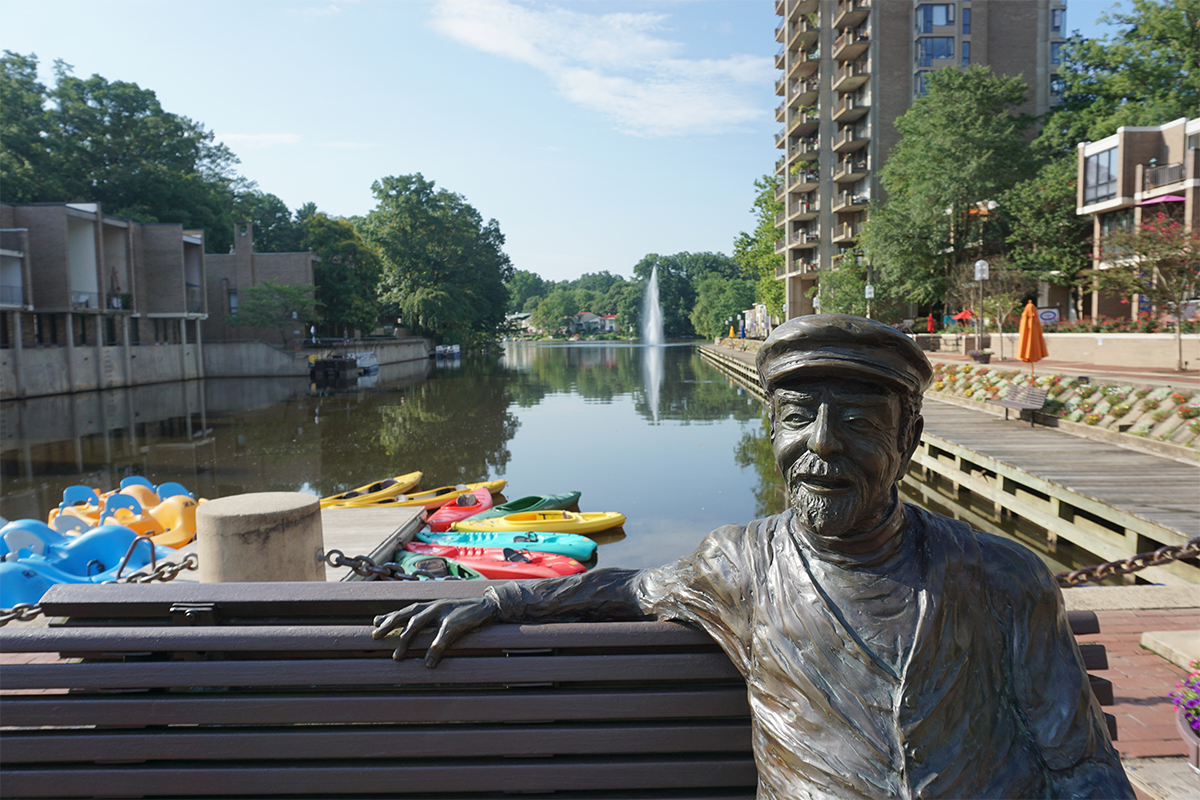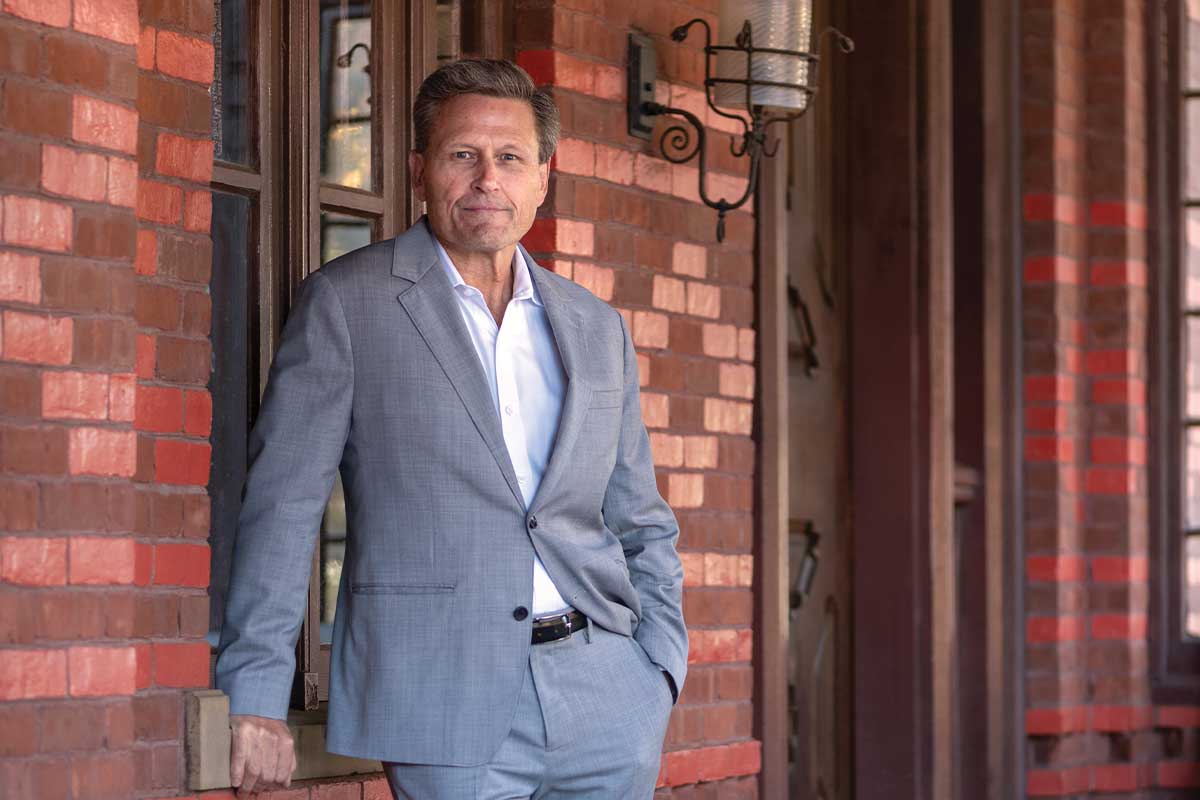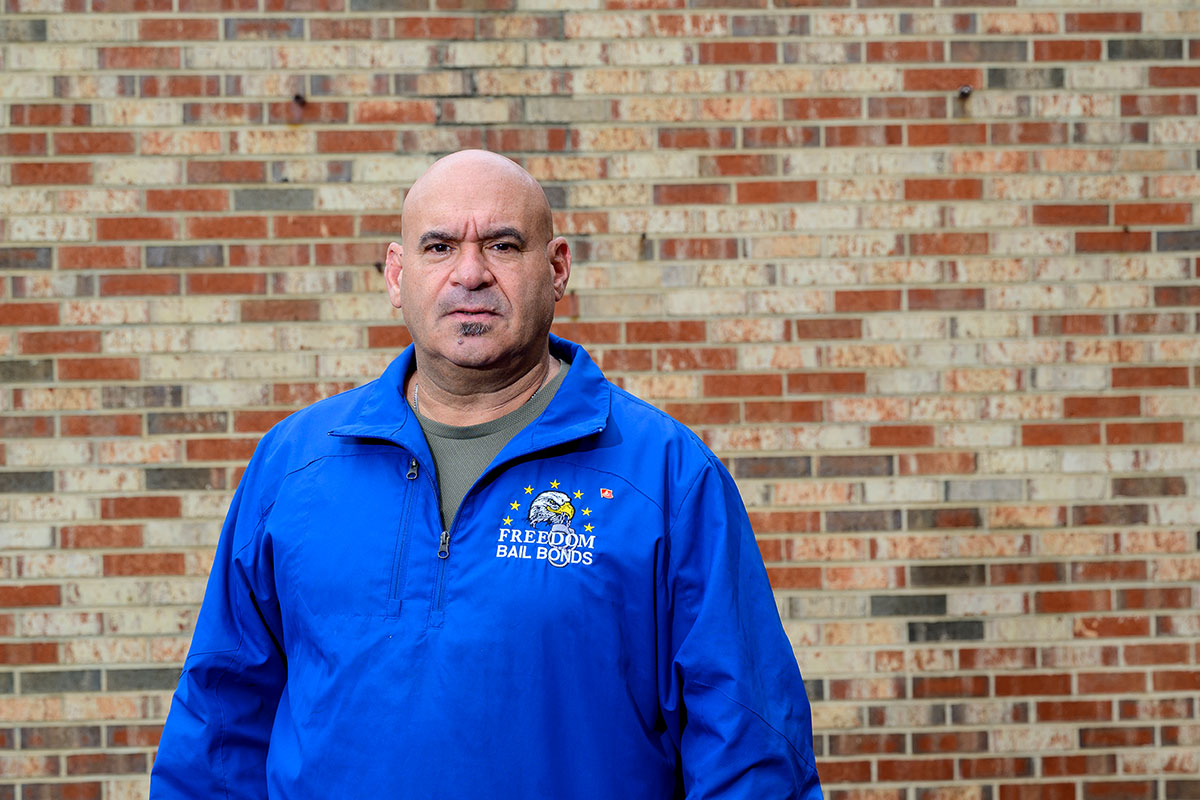
Everybody loves freedom. That’s the catchy slogan emblazoned on the company car, a colorful Toyota SUV that the bounty hunters from Freedom Bail Bonding drive down to Florida to hunt down fugitives who jump bail. The cash bail industry is known for its fetching catchphrases, things like “in jail, we bail” and “you ring, we spring.” But “everybody loves freedom” seems a bit more universal in its appeal, a testament to truth, justice and the American way.
“We went to Georgia a couple of months ago and grabbed a guy,” says Dave Gambale, founder of Freedom Bail Bonding. “We used our gas and our time. We brought him back, and it didn’t cost the taxpayers anything.”
Freedom Bail Bonding pretty much owns the market in Fairfax County. For now. But that might change, with November’s local election shaking things up. Back in June, longtime incumbent Commonwealth’s Attorney Ray Morrogh lost the Democratic primary to progressive challenger Steve Descano. In addition to running on a platform that includes eliminating the death penalty and not prosecuting marijuana possession, he ran on ending the cash bail system in Fairfax County.
“Having our prosecutors not ask for cash bond really does move the needle,” says Descano, who defeated independent candidate Jonathan Fahey in the general election in November. “We’ve seen that in Richmond and Charlottesville, where commonwealth’s attorneys have already started to implement this.”
Bail bondsmen in Virginia are kind of like a cross between a privatized sheriff’s office and a rouge insurance agent. They show up to the courthouse each Monday morning and sit through long dockets where all the people arrested over the weekend are processed. Because they get a 10% cut for every bail bond, they’re looking for judges to require a bond of $2,000 or more. Most bail bondsmen won’t bother with a transaction that earns less than $200.
This post originally appeared in our December 2019 issue. For similar profiles on NoVA residents, subscribe to our weekly newsletter.
“If you have a warrant out of Fairfax County because you failed to appear but you live in Baltimore, Fairfax County is not going to go to Baltimore to get you,” says Gambale. “Someday, if you ever get pulled over or if you’re ever somewhere drunk and they run your name … ‘Oh wait a minute, you’ve got a warrant.’ That could take years.”
Critics say the system puts a price on justice, criminalizing poverty and separating poor people from their families and their jobs. Take, for example, a case where a judge sets a $5,000 bail. Wealthy people can typically pay the full amount and don’t need the services of the bondsman. Most people who find themselves behind bars don’t have easy access to cash. They can’t afford the $5,000 bail, money they would get back if they show up to court. But they probably can pay the $500 fee to the bail bondsman, money the bondsman gets to pocket.
“Think about what that does to somebody who can’t afford $5,000, to give $500 that they’re never going to get back for their freedom,” says Descano. “It pushes them more toward the line of poverty, which is going to push them more toward recidivism.”
Spending time with Gambale at the Fairfax County courthouse is kind of like watching a shadow branch of government in action. Strolling through the corridors of justice, judges ask him about his health and defense attorneys make small talk about the weather. Outside most courtrooms are tables and chairs where Gambale’s legion of employees have set up makeshift offices. Inside the courtrooms, they sit in the back with a list of defendants working the arraignment docket.
“They are selling security and buying risk,” says Richard Kelsey, former assistant dean at the George Mason School of Law. “They’re trying to pick up customers.”
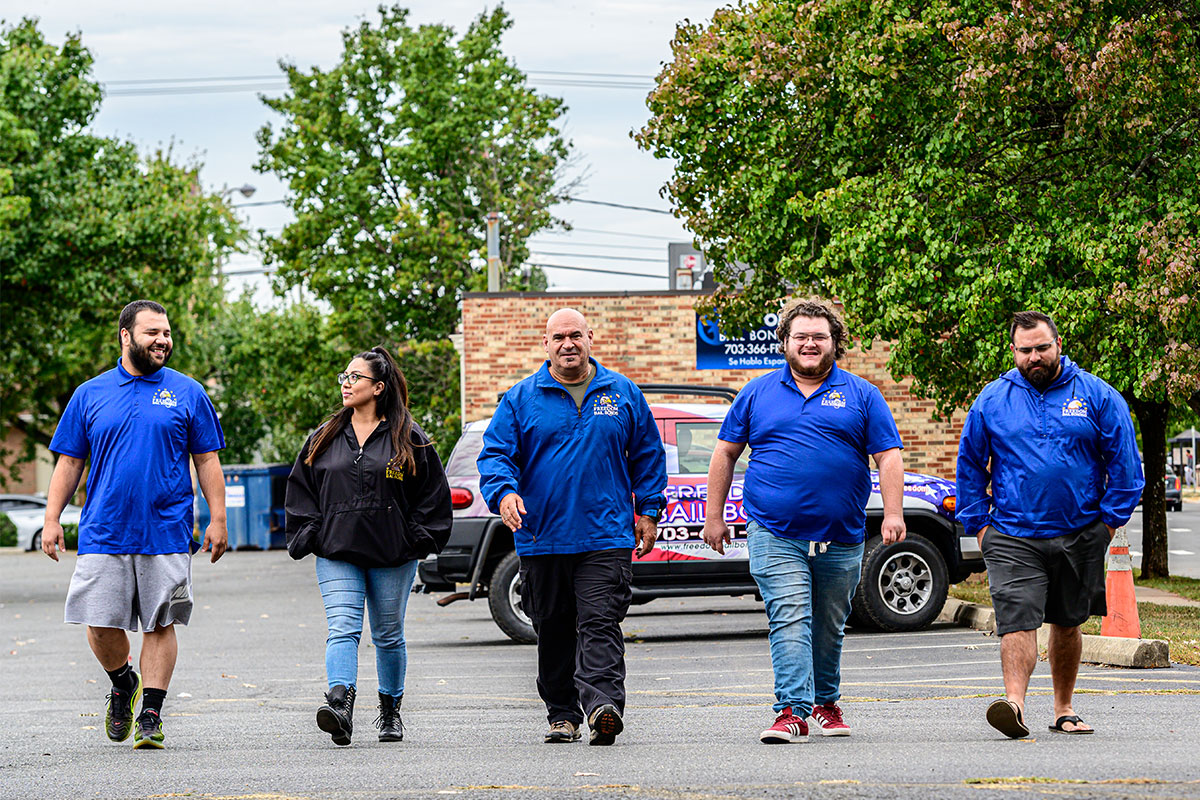
The appearance of the bail bondsman in Fairfax courtrooms is so ubiquitous, it’s difficult to imagine how the system might work without them. But it is possible. Courthouses across the country are slowly shedding themselves of the practice, outlawing the business one docket at a time. Even in places that still allow bail bonding, some courts don’t give insurance salesmen free reign to walk through the courthouse like loan sharks looking for chum.
“In Fairfax, the bondsman can go into the courtroom and work the arraignment like a job,” says Vernon King, who runs a bail bonding company in Hanover. “Down here, that stuff doesn’t happen. We’re not allowed to do that.”
Fortunately for Freedom Bail Bonding, it has a secret weapon: Dave Gambale. He’s a man who seems larger than life, a character out of a movie that crosses Dog the Bounty Hunter with Judge Judy. He can be loud and obnoxious, aggressive and demanding, insulting and crude. Catch him at a reflective moment, though, and he can be thoughtful and even delicate. A native of Massachusetts, he still has a distinct North Shore accent that places him somewhere between Boston and New Hampshire.
“He’s Italian, so he’s a storyteller,” says King, a longtime friend. “And he’s a former Marine Corps drill instructor, so he’s tough, but he has a heart of gold. That dude would do anything for anybody on this planet if he could.”
Dave Gambale owns the bail bonding industry in Northern Virginia. There are other people who work the arraignment hearings. But there’s only one Freedom Bail Bonding, a massive operation that has five offices throughout the region and works in more than a dozen jurisdictions. Gambale started working for a bail bondsman in Prince William shortly after separating from the Marines, although a few weeks into the job he realized what it would take to start his own business. So, he drove to Florida and talked his way into a direct contract with the insurance company that helped finance his employer.
“They trusted me,” says Gambale with a smile. “I’m a visionary.”
The history of bail stretches hundreds of years, a time before prosecutors were even involved. Most crimes were private affairs, pitting one party against another. People who had been wronged were in court seeking money, not justice. Even murder cases could be settled by a fine paid to the victim’s family. Defendants were detained until a family member or friend provided a guarantee that the accused would show up in court. It wasn’t a perfect system, of course, and as early as the 1840s some were seeking reform.
“Is this state of law in harmony with the enlightened spirit of the age?” asked Virginia Governor William Smith in his 1846 annual message to the General Assembly. “I think not.”
The reform he was seeking would make the bond a lien on property. That way the courts could step in and embarrass the people who vouched for the bail jumpers by seizing their property. For the governor, it was a way to respond to the increasing problem of bail jumpers. In so many cases, he said in his annual message, “The apparent debtor is on the highway in search of a western home.” The governor’s reform turned out to be a quick fix for a problem that became more pronounced after the Civil War.
The modern bail bonding industry was created in the Wild West, where violence and aggression were anonymous. There were no family or friends to vouch for all the defendants sitting in jails after the bloody saloon fight. And they certainly couldn’t put up any property as a lien. So what was the solution? This is where two California bartenders step into history and change the face of the criminal justice system in America.
Peter and Thomas McDonough were brothers who worked at their father’s saloon in San Francisco, conveniently located near the Hall of Justice. It must have been a rough place because the clientele was always getting locked up for something, which hurt business. So they made a habit of putting up bail money. It started as a way to prevent losses, but they eventually realized it was a way to make money. After a while, the “Old Lady of Kearny Street” abandoned alcohol and specialized in bail bonds.
A 1937 report on police misconduct called the operation a “fountainhead of corruption.” A 1941 article in Time magazine declared the McDonough bail bondsmen “without a doubt, the most notorious business house in San Francisco.” It might have been a racket. But it was a racket that made a lot of money, and by the 1940s the bail bonding industry had spread to almost every courthouse in America. It was a system that was designed for profit, though, not public safety. Congress responded by passing the Bail Reform Act in 1966, giving judges more autonomy.
“Since 1966, the problems of crimes committed by persons released on bail have become acute,” said Republican Congressman Dick Poff of Roanoke. “The safety and security of the property and of the people of the American community are at stake.”
That appeal to law and order was successful across Virginia, an arch-conservative state still clinging to its Confederate roots and responding to desegregation with massive resistance. Congressman Poff also got to use the issue to bolster his reputation as an anti-Communist crusader, creating new penalties for bail jumpers after a high-profile case involving several leaders of the American Communist Party jumping bail after being arrested by the feds.
“The $80,000 bond posted by the Communist Party meant nothing to the Reds as compared with the value of their trained henchmen,” the congressman said at the time.
It was a system designed for private gain rather than public safety, and judges felt like they were in a vice. Either they set bail that encouraged the services of the bail bondsman or they risked allowing more crime. Many judges believed the Virginia criminal code didn’t give them much authority anyway, which led to a reform effort in the 1970s. Democratic Delegate Theodore Morrison of Newport News proposed a bill that would give Virginia judges clear authority to release defendants by means other than bail bonds pending their trials.
“Hopefully the changes will mean more individual consideration and fewer hardships for normally reliable persons who may or may not be proven guilty of a crime once they go to court,” explained Morrison.
Critics say one of the major problems with the cash bail system is that bounty hunting encourages bad behavior. Bail bondsmen can get away with stuff police would never dream of, like busting into people’s houses without a warrant. They can cross state lines without extradition procedures. And it’s an industry known for its roguishness. A bail bondsman in Kansas was recently accused of attempting to coerce women into having sex in lieu of bail, and a bondsman in Louisiana was found guilty of bribing judges with bottles of Absolut vodka and lap dances.
Because the line between public safety and private enterprise is blurry, confusion can be dangerous. Take, for example, a high-profile case from the early 1990s in Virginia Beach. The bail bondsman tracked down a woman he was searching for and found her at the home of a boyfriend. But when he broke into the boyfriend’s house, he was confronted by the boyfriend and his baseball bat. The bail bondsman shot the boyfriend and fled, leading to a case that started many people rethinking a system that privatizes a traditional role of Virginia sheriffs.
These days, the concept of cash bail is under attack. Groups that have condemned the system include the American Bar Association, the National Association of Counties, the International Association of Chiefs of Police and the National District Attorneys Association. Kentucky was the first state to ban commercial bail bonding and bounty hunting. Oregon followed suit in 1978, and the District of Columbia hasn’t allowed bail bondsmen since 1992.
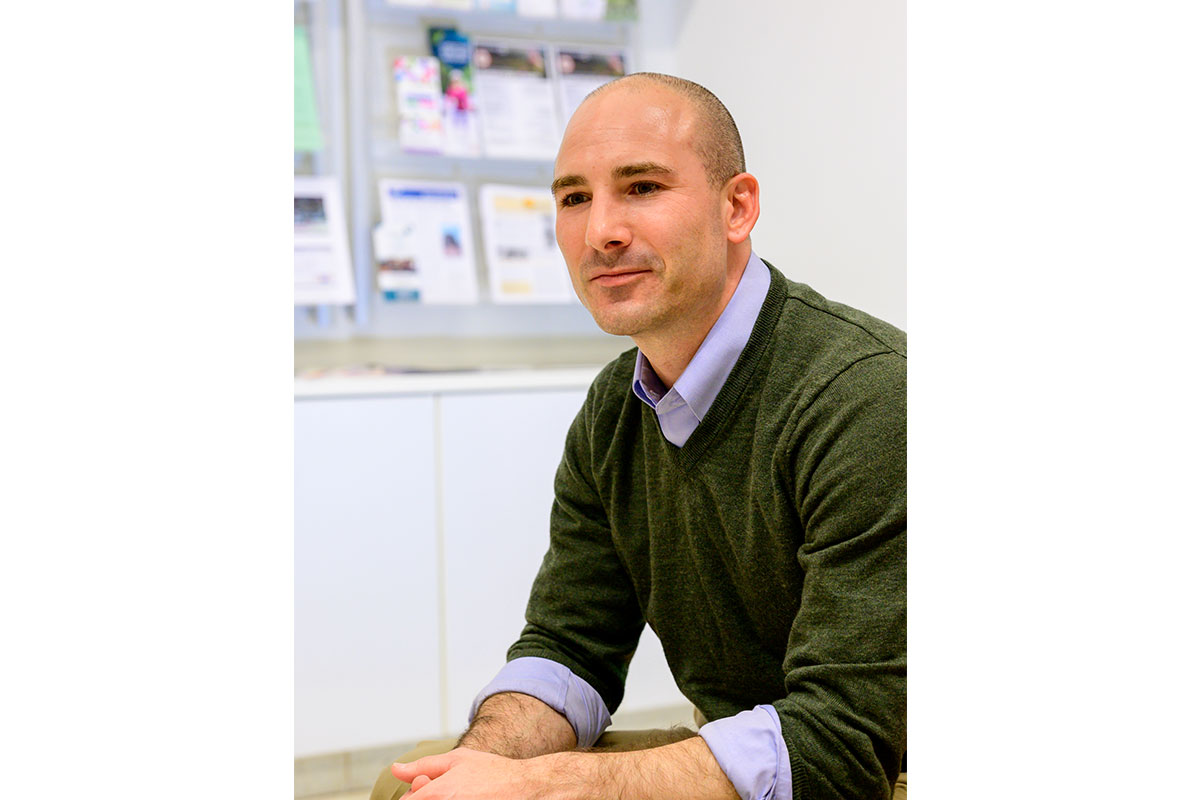
“Take a look at DC. They haven’t had bail for decades,” says Descano. “With something as simple as phone calls and text messages, they have a higher rate of appearance for hearings than nationwide.”
The alternative to cash bail is pretrial services. That’s the government-run program that sends text messages to people who have court dates, a group of people that includes many who don’t have great scheduling habits. They are just as likely to forget about their court date as they are a doctor’s appointment or PTA meeting. The bail bond industry views the phenomenon of pretrial services as competition, squeezing out their cut.
“Pretrial is not really accountability,” says Gambale. “They’re letting people out on pretrial that have immigration detainers. How are you going to supervise someone who is at Farmville in federal custody?”
People who work in the bail bonds industry like to think of themselves as doing the people’s work for free, a force of privateers serving the public on the cheap. Yes, they make money doing it, although they prefer matching blue shirts to the slick business suits preferred by the courthouse ring. It’s like privatized justice, saving the taxpayers their hard-earned money.
“Do you believe that your tax dollars should be used for criminals to be released from jail for free?” asks Joey Tropea, vice president of Freedom Bail Bonding. “These new judges, like the prosecutor who’s new, came in saying they don’t believe in cash bail and they’re going to let them out. Then their guys weren’t showing up to court and they said, ‘Oh I guess I better start putting cash bail on them.’ The judges are starting to see it.”
On the campaign trail, candidates for commonwealth’s attorney can talk all they want about ending the cash bail system. And once they are elected, they will make a recommendation in every prosecution. But it’s not really their call. Judges in Virginia have the final say. And even in places where elected prosecutors have ditched cash bail, judges sometimes still step in and call for the services of a bail bondsman. In Alexandria, Commonwealth’s Attorney Bryan Porter no longer requests cash bail, although he says judges at the city courthouse still use the old system anyway.
“I think in very, very rare circumstances a cash bond might help ensure that somebody appears in court,” says Porter. “But in those cases I’m thinking about very complex white-collar cases. It could conceivably help ensure that somebody appears in court if they think, ‘Hey, if I don’t go to court I could be forfeiting ten grand or fifteen grand.’”
Ultimately, Porter says, the entire idea behind cash bail is flawed because it runs counter to human nature. He says criminals are not motivated by how much money they might lose if they commit a crime. When Porter issued a press release announcing a “new cash bail policy” in January of this year, he explained the decision was driven by a commitment to “safeguarding the due process rights of citizens,” adding that a “robust, well-funded pretrial supervision program” would be needed to support the new policy. Now, almost a year later, he says the old system relied on flawed assumptions about the primacy of cash to human behavior.
“I don’t think that’s the way it works,” says Porter. “I don’t think people say to themselves, ‘You know, I might commit another crime. But if I do, I might be forfeiting $300 in cash because of the bond I put up.’”
Just how robust does that pretrial funding need to be? This is where people in the bail bonds industry like to stake their claim, saying their industry could save the taxpayer untold amounts of money that could be used for roads or bridges. When asked about that argument, Descano described it as “misguided.” He noted that the cost of keeping an inmate in the Fairfax County jail is $225 a day, adding that the criminal justice system has a bad habit of stripping people of their jobs, their apartments and their kids.
“So you are pushing somebody potentially into more crime down the road, which means, of course, less safety for the community,” says Descano. “That means that person is going to continue to recycle into the system potentially for years and years.”
It’s an issue that featured prominently on the campaign trail this year, when Descano was hitting the longtime incumbent hard on the issue. The election happened against a backdrop of a larger criminal justice reform movement. A collective known as National Bail Out now work to help women in 35 cities escape jail. Concerns about widespread incarceration are leading people to find ways the justice system can be less punitive, perhaps even more helpful. Prosecutors all over the country are running on these kinds of platforms and winning, creating a sense that the old-fashioned system that thrived for years was on its way out.
Descano was not alone. In neighboring Arlington, the commonwealth’s attorney primary election featured a similar dynamic: longtime incumbent ousted by progressive challenger running on criminal justice reform. They will join Richmond and Charlottesville as major jurisdictions where the elected prosecutor is carrying out what many voters consider to be their mandate: ending the cash bail system. Not everybody shares that view, though. After losing the primary, Ray Morrogh endorsed the independent candidate challenging Descano on the November ballot, federal prosecutor Jonathan Fahey.
“He embodies all the values that make for a good prosecutor and person: honesty, integrity, humility, knowledge and experience,” said Morrogh in a written statement announcing the endorsement in September. “These are the values that are essential to keep Fairfax County one of the safest counties in our nation for its size.”
Descano says Morrogh was bitter and disappointed at losing the election, adding that his election is a mandate from voters to move quickly on criminal justice reform. On the campaign trail, he said Morrogh’s values didn’t align with the values of the Democratic primary. And winning the Democratic primary in Fairfax County is basically the same thing as getting elected, so it was an instance where movement on the issue will soon usher in a new day at the courthouse.
“These are appendages of a legal system from hundreds of years ago that are not empirically supported,” says Descano. “There’s no correlation between cash bond and safety, and there’s no correlation between cash bond and actually showing up to court.”
Gambale predicts a crime wave, unless judges see the error in all this and continue perpetuating a system of bounty hunters serving as Virginia’s privatized sheriff’s office. Meanwhile, he’s keeping his options open. Four years ago, Freedom Bail Bonding was limited to the DC region—Fairfax, Arlington, Alexandria, Loudoun and Prince William counties. But he says he saw this train coming down the tracks and expanded his empire to jurisdictions where the criminal justice reform effort hasn’t yet caught on, places like Winchester and Fredericksburg.
“I’m in West Virginia, too,” says Gambale. “Just got licensed out there.”
For now, he says, he’ll chase the industry where it exists. But he’s also looking at expanding into new parts of the industry, security companies that use GPS tracking devices to track defendants and bracelets that can monitor skin to alert judges to drunk drivers violating parole. He calls the new company Knights Armor Security Training, a venture that seems like something out of a novel by Philip K. Dick.
“If the court orders them to stay away from this residence or this person’s work, then we would put a perimeter around the person’s residence or work,” says Gambale. “If they break the perimeter, then they violate the order of the judge.”
In the future, judges might not order secured bonds at all. These devices can be imposed as a condition of bond, cutting out the need of a bail bondsman to track down a fugitive. It’s an industry that’s still evolving, though, and some of the technology needs work. For example, Gambale says, the GPS devices don’t really monitor the skin for alcohol and vice versa. When asked why one device doesn’t exist that does both, Gambale immediately sees dollar signs.
“Wanna make ’em?” he asks, deadpan. “Me and you can go into partners.”


